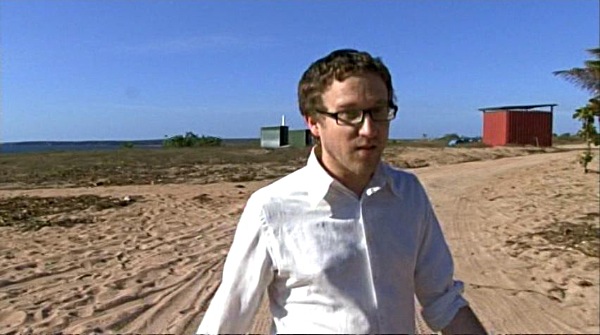Here are the web links I’ve found through to 10 December 2008, posted automatically.
- #mumbai: three days as a Twitter journalist | News.com.au: The story of 21yo Aditya Sengupta, a Mumbai student who became part of the Twitter clearing house for news in the wake of last week’s terrorist attacks.
- Adler, The Perverse Law of Child Pornography | The Columbia Law Review: “In our present culture of child abuse, is child pornography law the solution or the problem? My answer is that it is both. This reading pictures law and culture as unwitting partners. Both keep the sexualized child before us. Children and sex become inextricably linked, all while we proclaim the child’s innocence. The sexuality prohibited becomes the sexuality produced.” A challenging read.
- Prospect reads: first rate, brave Economist article on Thailand at First Drafts | The Prospect magazine blog: This post reveals that The Economist‘s feature article on Thailand was written by Peter Collins, their southeast Asia chief, as his final act before moving back to London.
- Thailand bans Economist | Straits Times: Needless to say, this week’s edition of The Economist is banned in Thailand, tho not “officially”. “This is one of those ‘cultural harmony’ bans, where the book distributors and stores take it on themselves not to distribute,” says free speech activist C J Hinke.
- Thailand’s monarchy is part of the problem : The king and them | The Economist: Also from The Economist, a bold editorial calling for Thailand to abolish its “archaic” lèse-majesté law.
- Thailand, its king and its crisis : A right royal mess | The Economist: The controversial cover story from The Economist this week, breaking the taboo on discussing the role of Thailand’s King in politics. It acknowledges that it’ll make Thais squirm, but it delivers one of the most incisive analyses I have yet seen. A must-read for anyone wanting to understand the Kingdom and the choices it faces.
- Live Filtering Pilot Another Lab Test: DBCDE | How to Be A Systems Engineer: Can this be true? According to the DBCDE officer this guy spoke with, the Phase 2 trials of Australia’s Internet filtering still won’t be real. “This will be a closed network test and will not involve actual customers,” they said.
- E-mail Etiquette 101 | Michael Hyatt: This is from mid-2007, and the hyphenated “e-mail” is a bit quaint. However these are all still valid points. I continue to be amazed at how poorly most businesses use basic tools like email.
- Otto the octopus wrecks havoc | Telegraph: Octopuses are smart enough to get bored and start causing trouble.
- Rolling Your Own Newsroom | O’Reilly Radar: Robert Passarella explains how he wired up a quick custom new page using Google Reader, Yahoo Pipes and some Typepad RSS widgets. The same thing could easily be dong using WordPress plugins or whatever.
- World's Top Tourist Traps | ForbesTraveler.com: “Not all overcrowded, merchandise-swollen travel hot spots are created equal, and some deserve to be flagged as full-fledged tourist traps.”
- Breaking news online: A short history and timeline | Teaching Online Journalism: A quick timeline of some major events in online journalism. I think it should include a lot more. Has anyone seen any more comprehensive lists?
- Inside Story | Politics, Society and Culture: “Launched in October 2008 by Australian Policy Online, Inside Story combines high-quality journalism and analysis to bring readers a distinctive view of Australia and the world. Drawing on a network of writers, researchers and correspondents in Australia and overseas, Inside Story investigates the forces shaping contemporary politics, society and culture. Inside Story is edited at the Institute for Social Research at Swinburne University of Technology.”
- Net porn: Whose rights matter most? | ABC News: Clive Hamilton has written another piece which tries to equate free speech with pornography, misrepresents the anti-filtering arguments, and deliberate overlooks that filtering won’t work — he even says he’s ignoring that discussion, claiming we should debate the morality of pornography before we look at whether filtering is possible. Full of intellectual dishonesty. Are these really the best arguments there are for comprehensive Internet censorship?
- The Art of the Title Sequence: What is says: A website dedicated to the opening titles of films and TV programs. I stumbled across it because they’re currently highlighting Soylent Green.
- A Penny for My Thoughts? | NYTimes.com: A Pasadena, California news site has outsourced all its local journalism to writers in India, who are paid $7.50 per 1000 words.
- The Musical Compositions of His Majesty King Bhumibol Adulyadej: The King of Thailand is, amongst other things, an accomplished jazz musician, playing alto saxophone and writing. This is a selection of his work.
- A piddling offence and much worse | www.smh.com.au: “Senator Stephen Conroy’s plotting and warring has added to Labor’s decline,” wrote Paul Sheehan in this revealing 2004 article. “His base certainly isn’t the electorate,” he writes. “His power comes from offstage, from the patronage of his mentor, Senator Robert Ray, and his years as a recruiter (his enemies call it branch-stacking), deal-maker and kneecapper for the Victorian Right. His reward was Senate preselection at the age of 31. Once in the Senate, Conroy could start knifing people under the protection of parliamentary privilege. He did not waste any time.”
- Sharing Around the World | Facebook: This video showcases a Hackathon project that visualizes all the data Facebook receives.


